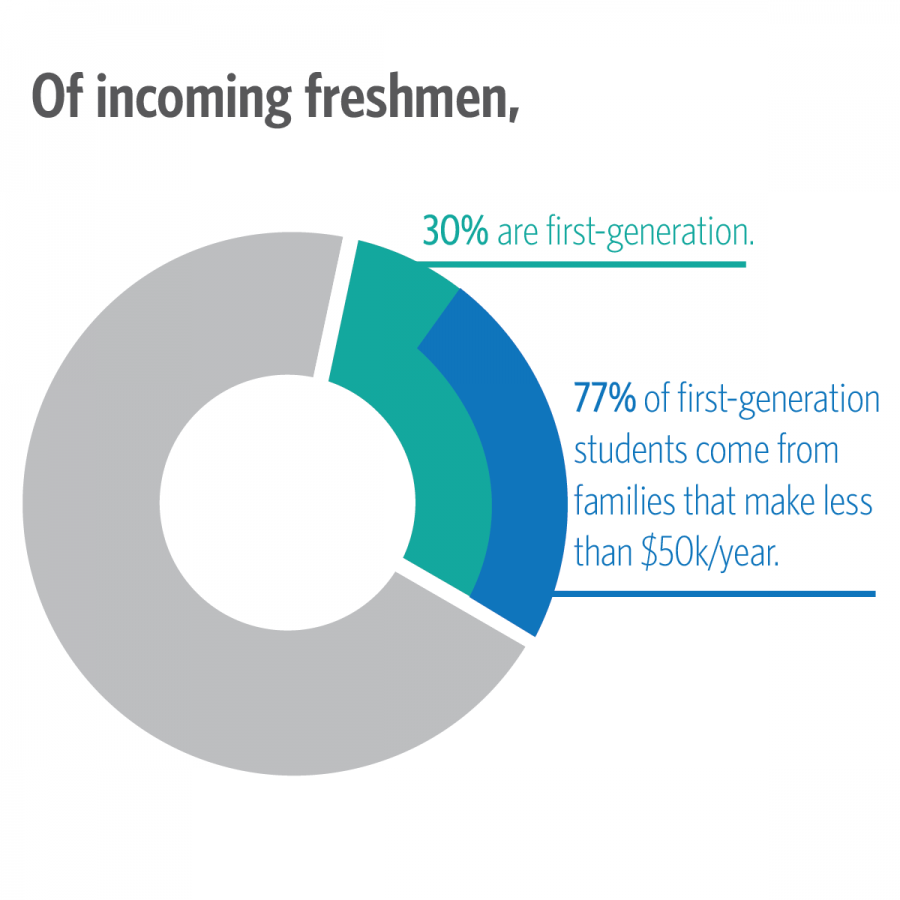First-generation students face challenges
Source: National Center for Education Statistics
Feb 26, 2018
The currently proposed federal budget includes a $9 billion cut to the Department of Education, reducing funding for Federal Supplement Educational Opportunity Grants and Pell Grants, which provide financial aid for first-generation students.
Almost 77 percent of first-generation students come from low-income households, according to a recent study by the National Center for Education Statistics.
According to the First Generation Foundation, almost 30 percent of all incoming college freshmen were the first of their family to go to college, as of the latest census.
Students under such financial stress have a harder time succeeding academically, said Kevin Pitts, vice provost for Undergraduate Education, in an email.
NCES also reported the leading causes for first-generation students dropping out of college is financial insecurity, but Pitts said the University is working to address that.
Get The Daily Illini in your inbox!
“We work very closely with (first-generation) students to help them understand the opportunities for financial aid through the federal and state government as well as through the campus and colleges,” Pitts said.
Navigating the financial aid system can be challenging, but the Office of Admissions and the Office of Student Financial Aid works with students, first-generation or not, to walk them through the process, Pitts said.
Pitts said RSOs on campus play an important role in helping first-generation students at the University.
One such RSO is I-CAUSE, which works to provide support for undocumented students and first-generation students, said Rubi Conchas, senior in LAS and I-CAUSE board member.
Conchas, a first-generation student, said there is substantial overlap between undocumented students and first-generation students, which adds to the difficulty when it comes to financial aid.
Undocumented first-generation students are ineligible for federal student aid programs like the Free Application for Federal Student Aid, or FAFSA.
In addition to financial difficulties, Pitts said navigating the University system can be difficult for first-generation students, who can’t rely on their parents’ firsthand experiences.
“If we have problems at school, we can’t go back home and ask for help, we have to search for other resources,” Conchas said.
La Casa Cultural Latina works with I-CAUSE and University administration to provide support services for first-generation students of all backgrounds, Conchas said.
“A lot of the resources we do get come through La Casa,” she said. “Outside of La Casa, we haven’t noticed much from the dean or the chancellor.”
La Casa hosts a variety of workshops and partners with various RSOs to help first-generation students, Conchas said.
Pitts said University administration will continue its commitment toward working with first-generation students.
“We want every student that comes on to our campus to be successful, and the Chancellor and Provost are committed to doing everything that we can to make that a reality,” Pitts said.






